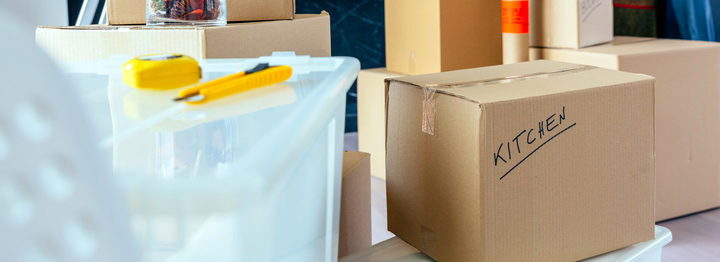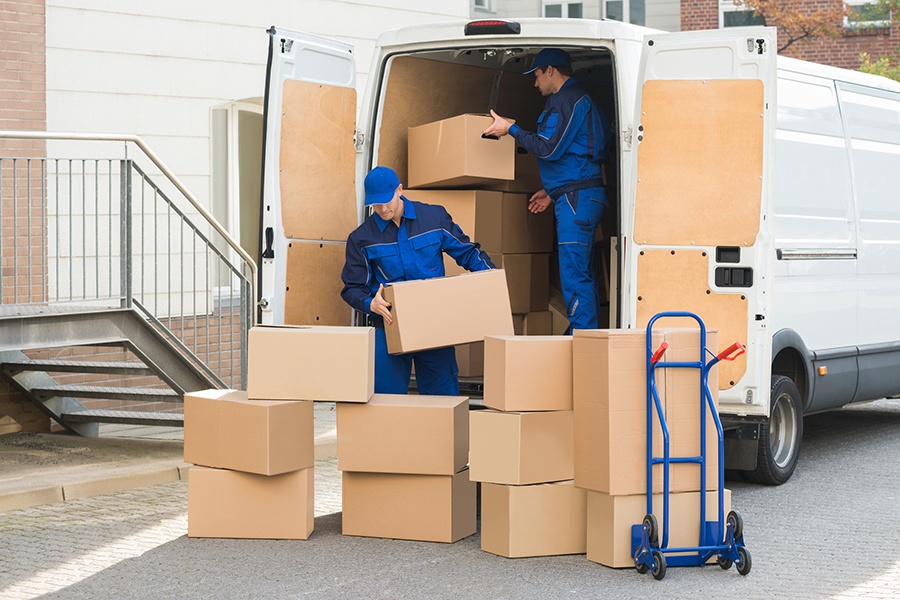
You might wonder why I would assume that you will forget things when moving. In fact, you might question how something gets left behind when you can clearly see it sitting right there. Believe me when I not only say that it is possible, but it is probable that you will find things missing when you arrive at your new home. I have lost mirrors that were not removed from the walls, a gas barbecue that stayed on the patio, and pieces of china that were at the back of the cupboard. It is incredibly easy to leave something behind. And because I was so upset at the loss and angry with myself for not being more careful, I decided that writing about it will help you to ensure that all your possessions are packed and safely on their way. Here are my tips for packing everything in an orderly fashion without forgetting something.
Before listing my ten tips, I should mention that you are in control when you are packing, loading the truck, and unpacking. If, however, you choose to go with a professional moving company, then everything will be done on the same day by the company’s staff. You will have to be very diligent in making sure that they do not leave anything behind. Consequently, some of the following tips will deal with checking up on professional movers, and some will refer to you completing your own move.
Items in the back of drawers and cupboards often get left behind in a move. Once you have finished removing everything, get on a chair or stool and look inside the cupboards. Use a plastic utensil with a long handle to tap the back area to ensure that nothing else is there that you can’t see. You would be surprised how many times you will find a lonely cup or bowl sitting back there. Once you are sure, there is nothing more inside, leave the cupboard doors open to know you have checked inside, or place a small bit of masking tape on the doors. When movers are doing the job, do not be afraid to check after they have finished the room. It is not necessary, though, to stand behind them as they work. Checking afterwards is more thorough and more polite.
Cubbyholes, attics, closets and under stairwells are great places for items to be lost. Aside from the fact that you forget about checking them all together, these areas are usually dark, and boxes are not seen. Be sure to have a flashlight handy when checking these areas even in the daytime. And again, use a broom handle to prod around. Plus, an even better way to make sure the items in these areas are packed is to remove the items earlier so that they are in a more obvious spot of the house.
Walk room-to-room and area-to-area in your home. Write down all the places that are packed with other items. For example, add to your list, the garage, the patio, the shed, the cubbyhole and the room name, the attic, the living room stairwell, the basement stairwell, the RV, and the porch. Anywhere in your home that you have stored your belongings, write the areas down so that when you are packing, you are sure to remember these spots. Likewise, if you have movers, you can direct them to the areas, and once you know everything is packed, cross the area off your list.
Incredible as it may seem, stuff always gets lost in the driveway or the roadway. One way to avoid this is to move everything to the moving van and place it right at the back doors or to the side. Do not set things down willy-nilly, so that you are looking everywhere to find more boxes. What also happens is you are walking to the truck with a box and get sidetracked. You set the box down and it never makes it to the truck. And so, it remains where you left it in the backyard. Get it to the truck immediately.
Another way that items are forgotten is when you need to keep them out to the last minute. The toaster and tea kettle are good examples. You have to make breakfast the day of the move, but end up leaving the appliances on the counter. To avoid this problem, as soon as you finish with an item, pack it right away. So regardless of what it is that you need to use, once it has been used for the last time, get it packed, and out to the truck. You might leave an empty box in the kitchen to place the last minute items from the whole house. Be sure that everyone knows to place their things in there when done using them.
Before the truck leaves, make a final sweep of the house, exterior grounds, any outside buildings or structures, the driveway, and areas around the truck. Move through the house in an organized fashion following room to room and keeping your list in hand to mark of the respective area as you have thoroughly checked them.
When packing boxes in advance, stay organized by completing sections of the house all at once. For example, don’t leave some paintings or artwork to be packed later. Get all the wall décor in one room done so that nothing is forgotten. Then you can quickly look at the walls and say that area is complete. But, if you leave one piece in this room, and another piece over there, you are bound to leave something behind.
Keep all cords and accessories with the parent items so that you can find them quickly when you arrive at the new home. And be sure that smaller items go inside boxes with other things. Do not just stuff in grocery bags and stick on the truck or in the car. They will get lost for sure. But if placed within in a bigger box of items, they will not be damaged and will be there when you need them.
Brooms, mops, and dustpans always get left behind. So do racks that are attached to doors in the kitchen, pantry, and bathroom. Spend an hour or two and go around the house, dismantling all the fixtures that are attached and pack them up. Don’t leave those to the last minute. Tie a string around the handles of brooms and mops to keep them together and put them right by the door.
When you have movers do the work, be really careful about things that are or are not your property. For example, sometimes they are confused in the kitchen with appliances. If you own your appliances, make sure the stove, fridge, dishwasher, and anything else is packed up. If you rent your home or apartment, make sure they do not pack appliances that are not your property.
As I have said before moving is about organization. By keeping lists, calendars, and thinking in advance, you can be sure that my ten tips for packing everything in an orderly fashion without forgetting something will help you to get the job done right.
